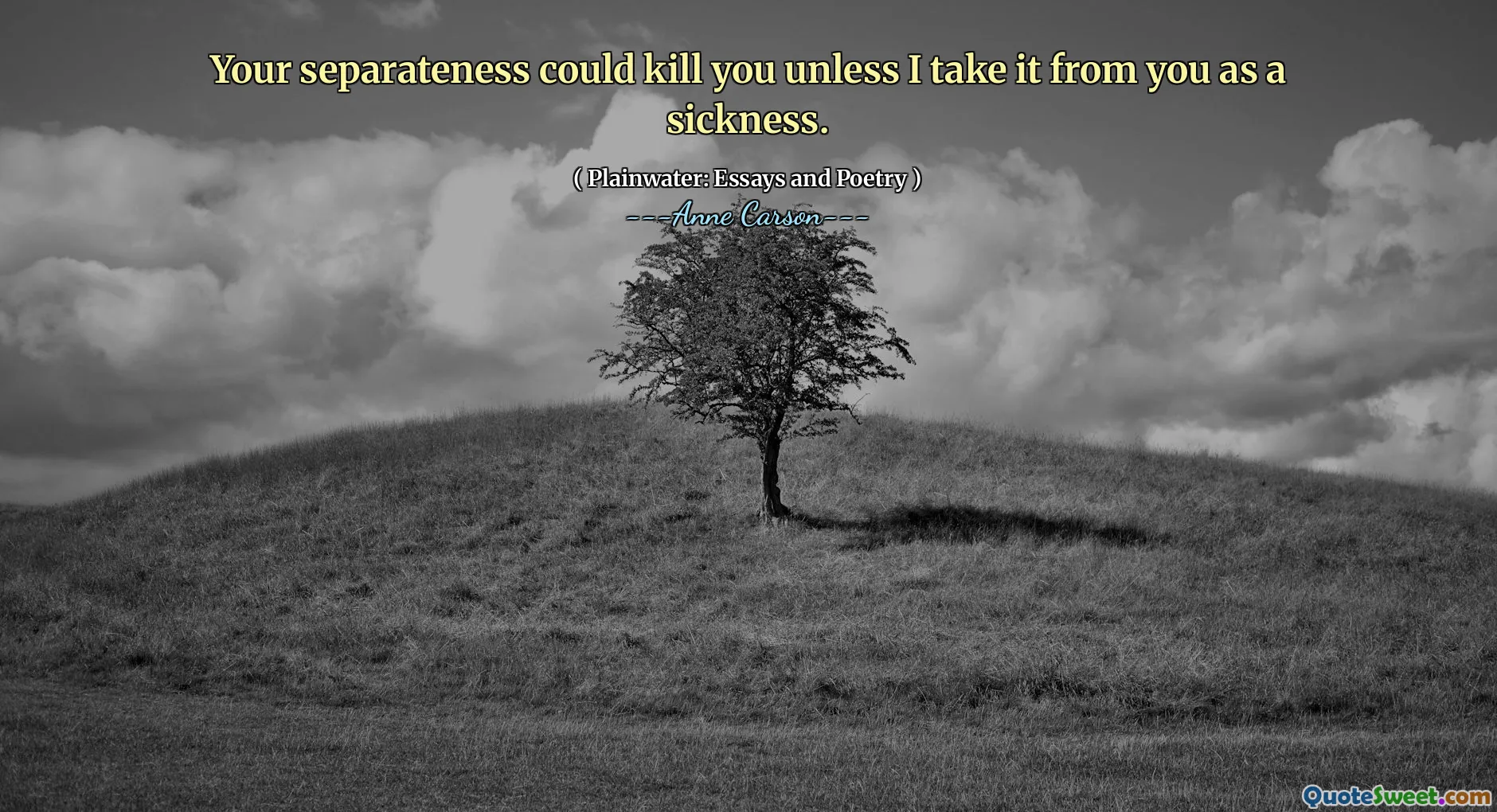
Your separateness could kill you unless I take it from you as a sickness.
This poignant statement underscores the profound interconnectedness of human beings. Often, we tend to see ourselves as isolated entities, believing that independence equates to strength. However, the quote suggests that such stark separateness, when held onto rigidly, can become a deadly ailment—perhaps leading to loneliness, misunderstanding, or emotional disintegration. The assertion that someone might need to 'take away' the destructive aspect of our separateness as a sickness implies that connection and shared vulnerability are essential for survival. It recognizes that emotional health relies on breaking down barriers that isolate us from others, allowing empathy, love, and communal support to emerge. The metaphor reveals that our identity is not fixed but rather dynamic, nurtured and sustained through relationships. It challenges the reader to reflect on how personal boundaries, while necessary for safety, can turn into obstacles preventing genuine connection. By viewing separation as a sickness, Carson emphasizes that healing often involves allowing others to enter our inner worlds, to share in our pain and joys, transforming isolation into community. In the context of 'Plainwater,' the quote resonates with themes of emotional openness and the human need for intimacy, suggesting that part of wholeness involves vulnerability and the recognition that our well-being is intertwined with others. Ultimately, it offers a compelling reminder that shielding ourselves too tightly can be detrimental, and that true strength lies in our capacity to connect, surrender, and heal together.






